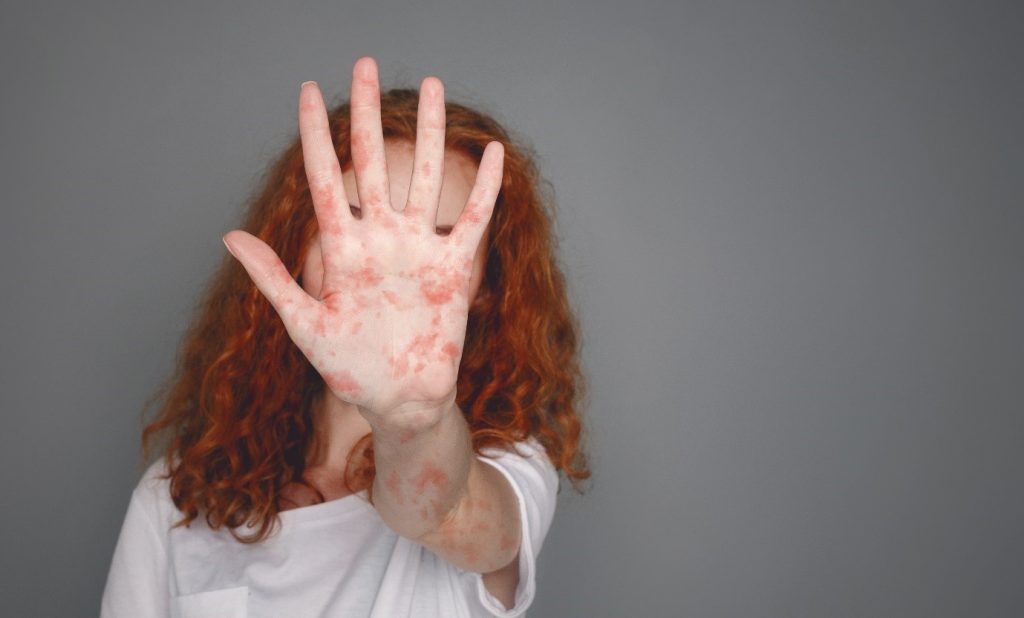


Queensland has reached six measle cases in the past fortnight, including three on the Gold Coast. This totals 31 cases this year alone which is more than double the cases reported for all of 2018.
While this epidemic is alarming, the home doctors at House Call Doctor have put together everything you need to know about the measles, including what to look out for, how it’s treated and how you can protect yourself from contracting the virus.
What is measles?
Measles is a highly contagious virus that is spread through the air. You can also catch the disease if you come into contact with an infected person’s body fluids, such as saliva from a sneeze. Measles can lead to severe pneumonia, swelling of the brain, ear infections, and in extreme cases, death. While all members of the public can catch the virus, those with a weakened immune system and people who haven’t been immunised against the measles are most at risk.
Where is measles most common?
Measles is common in many parts of the world, including Asia, Europe, the Middle East and Africa. Fortunately, Australia doesn’t report many cases of the measles each year, meaning Australian residentss are generally at low risk of catching the disease. However, international travellers from these countries can bring measles with them when entering the country, so it’s important to stay protected, even if there are no warnings of a measles epidemic. The current situation in Queensland means residents should be aware of the measles, look out for its symptoms and make sure they’re protected.
What are the symptoms of measles?
Initial symptoms of the measles are similar to the regular cold, including a fever, runny nose and a dry cough. These symptoms usually begin around 10-12 days after catching the measles and last for about 2 weeks. More severe symptoms include:
- Tiredness
- Sore and red eyes
- Developing a red rash over your body. While the rash isn’t itchy, it can last between 4-7 days.
- In young children, diarrhoea is also common.
How is measles diagnosed?
Measles is diagnosed by looking at the rash and examining symptoms like fever, runny nose and dry cough. Doctors will also ask if the patient has been in contact with someone who has the measles. GPs will then recommend some tests which can include a swab test from the back of your nose, a urine test and a blood test. The results of these tests will confirm the presence of measles so they can best advise treatment and alert other people who may be at risk of contracting the virus. If the person with the disease works at a hospital or attends a school, the local public health unit must be notified. This allows the public health unit staff to track down how the patient contracted measles, identify other people who may be at risk and take action to prevent it from spreading further.
How is measles treated?
People with the measles are generally prescribed time and rest while they recover as there’s no specific treatment available. However, there are ways to minimise the symptoms of the measles. It’s advised to drink plenty of water, get plenty of rest and take over the counter medications such as paracetamol to easy any pain and fevers. Staying indoors and isolated is also recommended to prevent the disease from spreading. However, if measle symptoms escalate, the experts at House Call Doctor may recommend hospital treatment.
How do I prevent myself from getting measles?
The measles vaccination is the best way to prevent yourself from contracting the disease. Queensland Chief Health Officer Dr Jeannette Young is advising the public to make sure their vaccinations are up to date. Travellers should ensure they receive the full 2 doses of the vaccine if they haven’t previously been immunised or had the disease in the past. This is particularly important for those travelling to New Zealand which has recorded more than 1,.600 cases this year.
Most children are immunised against measles under the National Immunisation Program (NIP), receiving their first dose at 12 months old and their second at 18 months. These vaccines protect you from mumps, German measles, chicken pox and general measles. If you’re unsure if you’ve been vaccinated against the measles, the Australian Government Department of Health recommends getting the vaccine again. It’s free in Australia and is safe to have more than twice.
If you’re experiencing any of the symptoms of the measles or suspect you may have come into contact with someone who has the virus, the after-hours bulk billing doctors at House Call Doctor recommend seeking medical advice from your regular GP and getting in touch as soon as possible.




